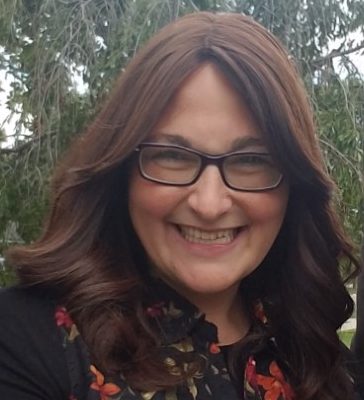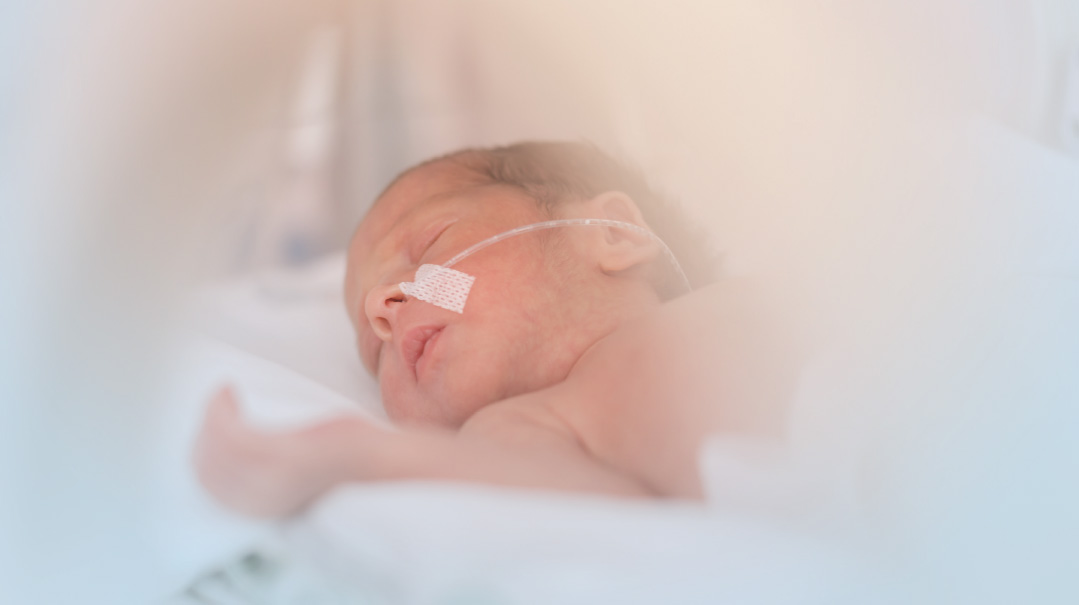From a Distance

Hearing updates through the telephone wire made the everyday angst of what my family was living through feel very far away

Anyone who lives far from their family will get it: Since we can’t visit often, we make sure to call, text, Zoom, WhatsApp — anything to stay connected. But even with all these newfangled methods of communication, it’s just not the same.
I live in Detroit; most of my family is across the world in Australia. I miss all the everyday exchanges, the lazy Shabbos afternoons together, the “Can I get you anything from the supermarket” calls. Sometimes I must miss family simchahs… and I’m not around during the tough times, either. Those are the times that cement family and community, but from a distance, I can’t do anything to help other than daven.
No one in my family had heard of a diaphragmatic hernia until my nephew in Sydney was born on February 25, 2010. He was born with a hole in his diaphragm, and all the organs in his abdomen had moved through the hole and up into his chest, squashing his lungs, which hadn’t grown at all.
ICU babies usually have at least a bud of lungs; this baby didn’t have any.
As soon as he was born, he was given emergency surgery to close the hole, to put all his organs back where they were supposed to be.
From almost 10,000 miles away, I saw pictures and heard the grim reports that the doctors had given my brother and sister-in-law. I thought of Chaim and Danielle and their three-year-old Chaya often. I davened, said Tehillim, gave a listening ear, but what else could I do? I was busy with carpools and cooking for my family and discussing the latest basement floodings with my Detroit neighbors, people who don’t even know my family.
Hearing updates through the telephone wire made the everyday angst of what my family was living through feel very far away.
For weeks, Chaim and Danielle lived in the bubble of the ICU ward. The constant humming of machines created a pervasive white noise, broken only by the occasional chilling cries of parents whose babies didn’t make it.
At one point, they were standing next to the little hospital crib, looking at their baby who was swollen with medicine, electrodes and wires attached all over his body. The doctors were tense, just waiting around.
“Can’t you do anything?” Chaim asked.
“There’s nothing else we can do,” one doctor answered him frankly. “We’ve done everything we can. Now it’s up to him. Honestly, we’ve seen babies who were far better off than this one die… we need to tell you: prepare for a funeral.”
The doctors had given up, but Chaim and Danielle refused to accept their prognosis. The Heavens were pounded with tefillos from around the world. People took on new mitzvos for this new baby who seemingly had no chance.
Weeks passed in a blur, with constant visits to the baby in the hospital ward, and then suddenly it was Pesach. Chaim felt suspended in time, unable to relax, worried that he was going to miss “that” call about his son. On the last day of Pesach, he invited four of his friends to join him for a seudas Mashiach at the hospital. They walked the 45 minutes together, carrying matzah and wine. They ate in the waiting room. Then Chaim asked the nurse, “Do you mind if we sing at the baby’s bedside? We won’t be loud.”
The nurse readily agreed, so the men pulled up some stiff plastic chairs by the baby’s crib. Careful to keep their voices low, conscious of the critically ill kids in the ward, they began to slowly sing a string of soul-stirring melodies. As is the Chabad custom, they sang the niggunim in order, their voices blending. These men in their Yom Tov finery rocked to and fro in their seats, foreheads furrowed, eyes closed, lost in the moment and their private prayers. They were ending off with the Alter Rebbe’s niggun, the same haunting melody that’s sung at the badeken of Chabad weddings, when Chaim peeked down at his son and suddenly saw the baby’s eyes flutter open.
He quickly called over a passing nurse.
“The baby’s eyes opened,” Chaim told her.
“That’s impossible,” the nurse said sadly as she glanced over… and instantly did a double take. The baby’s eyes were open for the first time. He had defied the odds. He had actually pulled through.
At four months old, the baby was able to come home. Have a bris and a get a name: Menachem Mendel.
He needed therapies, of course, but soon he was walking, talking, dressing himself. Hitting milestones with breathtaking speed as time shot forward. There were appointments. School. Visits to his grandparents and cousins in Melbourne.
At age three, Mendel had an upsheren (yet another simchah I didn’t make it to). By that time, it was very clear Mendel was out of the woods, so Chaim and Danielle threw a huge seudas hoda’ah (another on the very long list of things I missed). The Yeshivah Centre on Flood Street housed the rollicking, wall-shaking thanksgiving party as the entire community pulled up in droves, dressed in their Shabbos best, and danced up a storm. Friends and family flew in from Melbourne and kids ran around the place, shrieking with excitement, their exhilarated faces smeared with remnants of the generous nosh table or decorated with face paint. This was the same community who’d said Tehillim, held Tzivos Hashem rallies, and davened for exactly this outcome.
These days, Mendel’s one of us. If you were to meet him now at age 13, you’d be taken by his sunny smile, his warm personality, and his sweet sensitivity. (“Bubby, why do you keep calling Zeidy ‘nuisance’?” he once worriedly asked my mother when he overheard her call my father Nosson.) You would never guess his rocky beginnings.
AS Mendel’s bar mitzvah approached, I knew with conviction that I had to be there. Because of Covid, it had been the longest I’d ever gone not visiting my family. On February 26, 2023, I flew from Detroit to Melbourne and enjoyed my parents, siblings, nieces and nephews, and childhood friends.
I was in Melbourne for two and a half days, and then, the highlight: We flew to Sydney for Mendel’s bar mitzvah. Parshas Zachor, literally, the Shabbos of remembering. But in this case, it wasn’t so much about Amalek, but remembering a miracle.
Squashed among a huge crowd of ladies eagerly looking down from the women’s section, lollies clutched in our hands, we waited for the moment. And then Mendel, this miracle child, a personified daily reminder that Hashem can do absolutely ANYTHING, was called to the Torah with his father. He said the brachos. Leined. And with that, the baby who wasn’t supposed to live, had done it — he’d become a man!
The men spontaneously burst into song and joyfully grabbed each other’s shoulders, weaving and dancing around the shul, Mendel in the lead, holding up his arms in a victory pose, while the little kids, oblivious, scurried around them, scooping up the lollies the women had rained down.
Among the crowd of women, and some of the most emotional, were two non-Jewish women, Steph and Charlotte.
Later, when the kiddush was in full swing, these two women dragged a couple of chairs between the men’s and women’s side and clambered on top to address the crowd.
Steph introduced herself. “Charlotte and I are ICU nurses. We looked after Mendel in the hospital when he was born. We’ve looked after many sick babies and been privy to the journey of many families. There are some families we will never forget. Mendel was one of the sickest babies we have ever looked after, and we didn’t think he would make it.
“We believe he lived because of the rock-solid faith of Chaim and Danielle, which they held on to and which kept them going,” Steph continued. “One of the doctors, who is a self-acclaimed atheist, told them, ‘I don’t know what you’re doing, but whatever it is, it’s working, so keep doing it.’ To be here right now, to see this miracle baby reach manhood, is one of the most incredible, heartwarming moments of our lives.”
Later, I asked Charlotte, “How many times have you seen the fruits of your labor at an event like this?”
She looked at me through eyes that have seen too many babies die young, too many parents robbed of the chance to raise their precious child, and the agony of countless families during the most pain-filled parts of their lives. “This is the first time,” she answered.
At the party on Sunday, the dancing was nonstop, the music carefully chosen to reflect the simchah. Plenty of “Thank You, Hashem,” “Anachnu Maaminim bnei Maaminim,” and naturally, “We Come from the Land Down Under!” Everyone was dancing and jumping ecstatically. No one could sit still with this type of energy pulsing in the air.
This wasn’t just a bar mitzvah; it was the celebration of a miracle. It was a tremendous yasher koyach to the entire family, to Mendel’s patient and beautiful sister Chaya, to everyone who helped bring him to this point… and most of all, a huge thank You to Hashem.
For me, it was surreal. Knowing I was leaving the next morning and who knows when I’d next have the chance to visit again, but relishing the minutes, dancing quite literally like there was no tomorrow. Because I may have missed all the steps that led them to this incredible event and I may have been far away during the hardest parts of their journey, but I was right there at this magical moment in time to help them celebrate this simchah.
Thank You, Hashem.
(Originally featured in Family First, Issue 842)
Oops! We could not locate your form.







